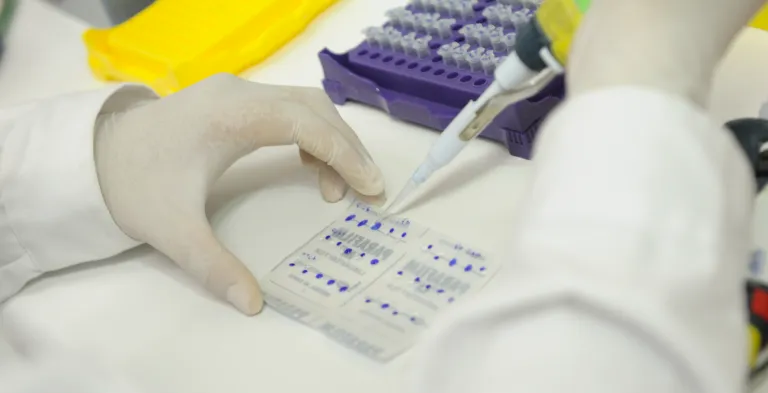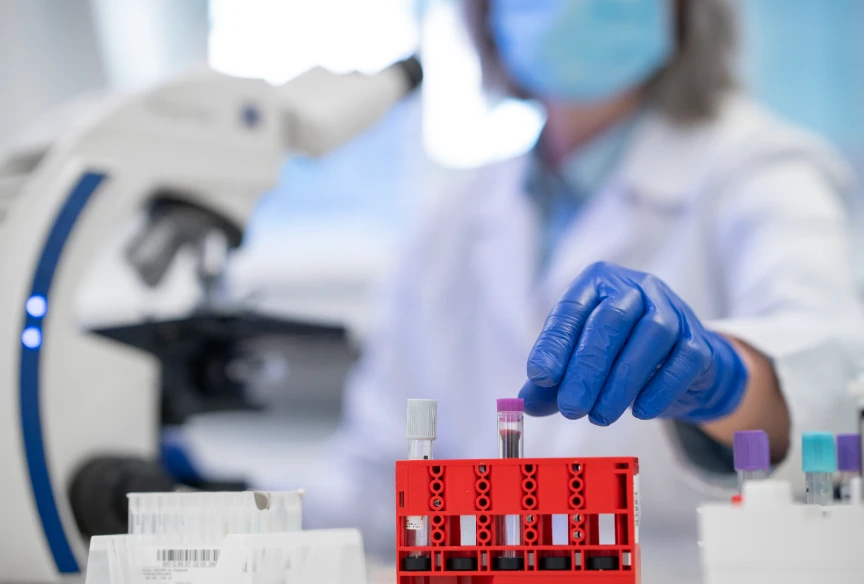
Quantitative Fluorescent Polymerase Chain Reaction (QF-PCR) is an advanced molecular diagnostic test that provides rapid detection of common chromosomal aneuploidies - specifically chromosomes 13, 18, 21, X and Y.
This specialized test identifies whether the correct number of these critical chromosomes is present, detecting conditions such as Down syndrome (trisomy 21), Edwards syndrome (trisomy 18), Patau syndrome (trisomy 13) and sex chromosome abnormalities with exceptional accuracy and speed.
Learn more

Recommendation
QF-PCR provides critical answers within days rather than weeks, allowing for timely medical decisions and reducing anxiety during this sensitive period.
Advantage
At Suraksha Genomics, we offer state-of-the-art QF-PCR testing with significant advantages :
Testing Process

Why Suraksha Genomics?
your Result
FAQs
Quantitative Fluorescent Polymerase Chain Reaction (QF-PCR) is a rapid molecular genetic test used to quickly count the number of specific chromosomes. It's highly effective for detecting common aneuploidies.
Our QF-PCR test screens for aneuploidies involving:
QF-PCR can be performed on Amniotic Fluid (AF), Chorionic Villus Samples (CVS), or blood samples.
QF-PCR is often used when rapid detection of common aneuploidies is critical, such as in prenatal diagnosis following a high-risk screening result, or for newborns with suspected chromosomal disorders. It provides results much faster than Karyotyping.
We understand the anxiety that can accompany prenatal testing. Our team of specialists is here to provide information, guidance, and support throughout your testing journey.
Contact our team today. Experience the peace of mind that comes from rapid, reliable answers from Eastern India's premier genetics laboratory.
Consult our experts